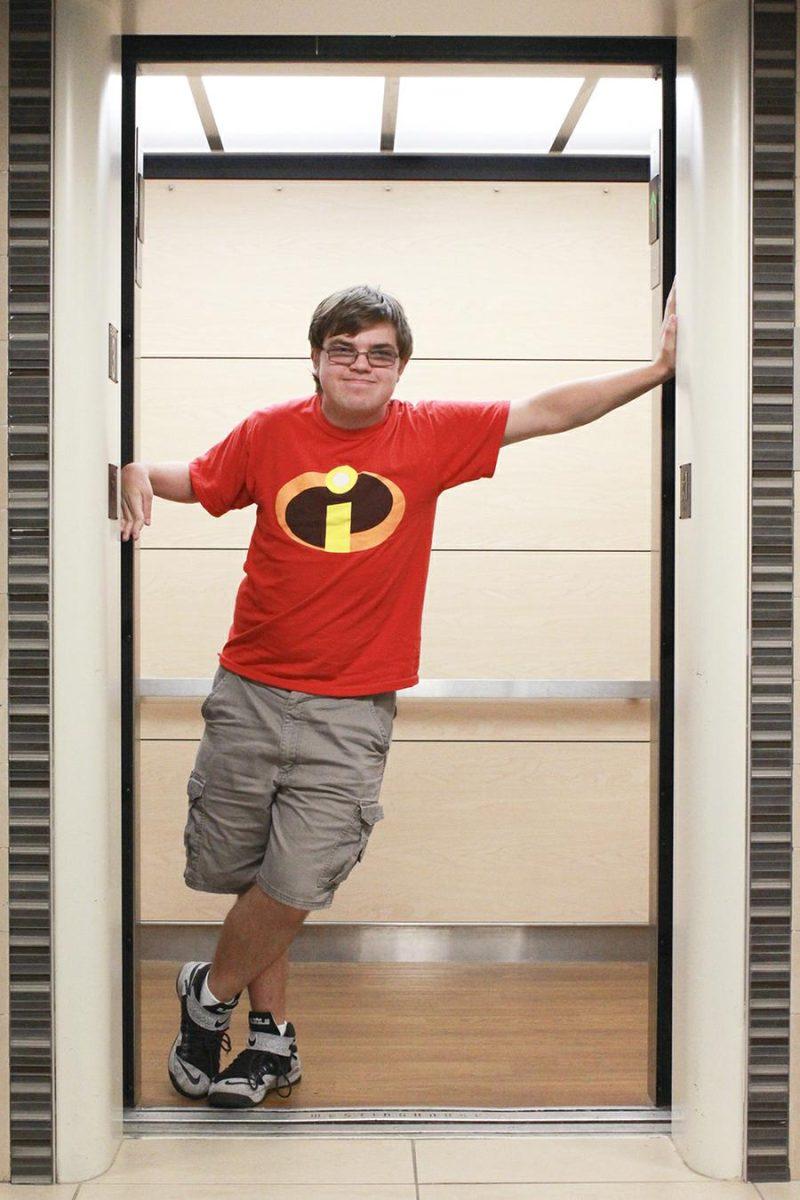Freshman and journalism major Christopher Olszewski was confronted with limited options when considering his choices for on-campus housing.
As a Walter Williams Scholar, he was left with two options of residence halls to choose from: Schurz or Mark Twain.
Olszewski was born with the condition spastic right hemiplegia, a form of the congenital disorder cerebral palsy. Due to his condition, Olszewski has limited fine motor skill in his right hand, and his right leg doesn’t function as well as his left. In addition to other CP symptoms, he also has epilepsy.
Olszewski said that when his options for freshman housing dwindled down to two options, he had to put his disabilities into consideration.
“My CP limits my ability to walk for long stretches of time, and as I’m sure you are aware, Schurz is a long distance from the center of campus,” Olszewski said in an email. “I decided to live in Twain because it was quite a bit closer to my classes and to downtown.”
Still, he said, Mark Twain isn’t perfect.
“The bed’s height is difficult to change; once they are lifted there is no easy way for someone to get up there,” Olszewski said in an email. “I know the frames are supposed to act as a ladder, but it just feels very unwieldy and unsafe. Despite the fact that they might be fire hazards, even just providing students with foldaway ladders would greatly improve the experience of simply getting in and out of bed.”
Olszewski said that because he lives on the sixth floor, having elevator access was a necessity, and has made the daily trek to and from his room less burdensome.
MU Disability Center Director Barbara Hammer said incoming freshmen with disabilities should not have to make accessibility their primary concern when assessing their housing options. Instead, students with disabilities should focus on what will allow them to gain the most out of their experience as a freshman.
“Residential Life has done an outstanding job of designing spaces that accommodate students with all kinds of disabilities, so issues of access really are not a concern,” Hammer said.
The MU Disability Center does not have a specific role in assisting students with disabilities in finding accommodating housing. Most of the on-campus freshman housing process is handled by the Department of Residential Life, and the application process is identical, Hammer said.
“The one difference would be when/if they require accommodations to live in the residence hall or apartment, such as a wheelchair-accessible bathroom,” Hammer said. “In that case, students go through our office to request and be determined eligible for the accommodations and that information is then conveyed to Residential Life for assignment to an appropriate room.”
For next year, Olszewski is looking to rent a house or live in an apartment that remains close to his classes.
“I still don’t have my (driver’s) license due to my seizures, so I still have to walk or bum a ride from somebody,” Olszewski said in an email. “The place where I live would have to be within reasonable walking distance of campus.”
Hammer maintains that in terms of accessibility, all Residence Halls are created equal.
“I don’t think there is any reason to consider one residence hall to be better than another,” Hammer said. “They all provide access so it’s really a matter of which hall works best for the student with respect to their particular access requirements, as well as other factors, such as involvement in a FIG or learning community.”








